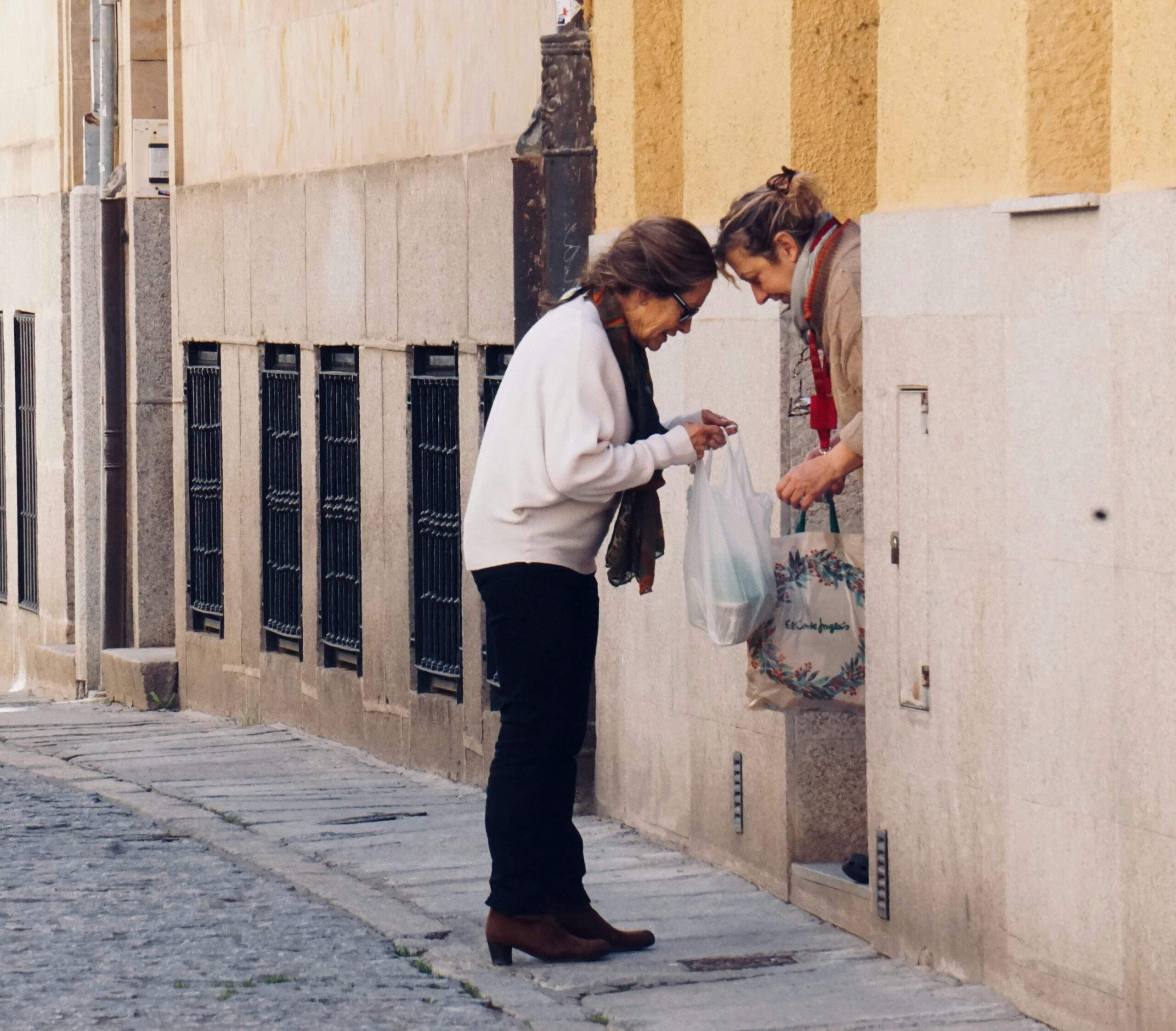Pain and suffering may often seem to be calling us to jump in and fix things, but perhaps they are asking us first to be still enough to hear what can really help, what can truly get to the cause of this suffering, what will not only eliminate it now but prevent it from returning. So, before we act, we need to listen. When we do become quiet enough and “listen up,” the way opens, and we see the possibilities for action.
We give very little attention to learning to listen, learning to really hear another person or situation. Yet think back to the moments with other people when our hearts were engaged and we felt fed by being together. In those moments, weren’t we hearing one another? In times like those, when we have listened to and heard one another, we have felt life arising from a shared perspective.
Why We Miss New Opportunities
Each situation, each moment of life, is new. We and this other person or group of people have never been here before. Oh, we’ve been in moments like it, but the present moment is new even if we have performed the same action with the same person hundreds of times before. Of course, it’s easy to think, “Well, it’s just like the last time, so I’ll do what I did last time,” and then not have to listen to the new moment. But if we do that, our lives become boring replications of what we have always done before, and we miss the possibilities of surprise, of new and more creative solutions, of mystery.
For our often humdrum lives to retain the taste of living truth, we have to listen freshly—again and again.
For our often humdrum lives to retain the taste of living truth, we have to listen freshly—again and again. A human interaction includes both the uniqueness of each being and the unity of the two, which transcends the separateness. For our minds to take such a subtle process and trivialize it to “just this again” or “nothing but that” is to reduce us to automatons, to objects for one another. And for action to be compassionate, we need to eliminate the idea of object, we need to be here together doing exactly what needs to be done in the simplest way we can. We need to listen.
How Mindful Listening Leads to Real Change
When we begin to act by listening, the rest follows naturally. It’s not so easy, of course—it requires us to give up preconceived ideas, judgments, and desires in order to allow space to hear what is being said. True listening requires a deep respect and a genuine curiosity about situations as well as a willingness just to be there and share stories. Listening opens the space, allows us to hear what needs to be done in that moment. It also allows us to hear when it is better not to act, which is sometimes a hard message to receive.
There are many people and organizations teaching techniques for clear active listening and appreciating the role of listening in the process of change. One such group is Rural Southern Voice for Peace, which has developed The Listening Project, a process by which members of grass-roots groups go door to door or to familiar gathering places as they are beginning a project. They ask “open-ended questions in a non-judgmental but challenging way that encourages people to share their deepest thoughts” about the area of the group’s concern.
Listening to others clearly opens the way to understanding the helping situation. But listening to others requires quieting some of the voices that already exist within us.
They report that “remarkable things happen as this process unfolds: Activists empathize with former ‘opponents,’ replacing negative stereotypes with understanding and concern; barriers are overcome as both sides experience common ground and see each other as human beings with deeply held hopes and fears. People being surveyed feel affirmed, sensing that what the listeners really want is to know their opinions; some start to change their opinions as they explore, often for the first time, their deeper feelings about social problems.”
Listening to others clearly opens the way to understanding the helping situation. But listening to others requires quieting some of the voices that already exist within us. When this happens, there is space not only for the voices of others but for our own truest voice. And, as Alice Walker has said, “The inner voice can be very scary sometimes. You listen, and then you go ‘Do what?’ I don’t wanna do that! But you still have to pay attention to it.”
Three Ways to Practice Mindful Listening
- Begin by listening to yourself. We need to take time to quiet down and listen to ourselves with attention—not only in the midst of action but when we are alone, walking in the woods, making tea, praying in church, fishing in a stream, or sitting in meditation.
- Try a breathing practice. A simple breath meditation can be helpful, because it returns us to a basic connection with the world. As we breathe in and out, and bring our awareness gently to our breath, we are experiencing the world coming into us and ourselves going back out into the world. We are reminded, in a simple physical way, that we are not separate from the world but continually interacting with it in the very makeup of our being.
- Give your undivided attention to others. We need to listen fully. It’s the basis of all compassionate action. Such full listening helps us hear who is calling and what we can do in response. When we listen for the truth of a moment, we know better what to do and what not to do, when to act and when not to act. We hear that we are all here together, and we are all we’ve got.
This article was adapted from Compassion in Action: Setting Out on the Path of Service by Ram Dass and Mirabai Bush.









